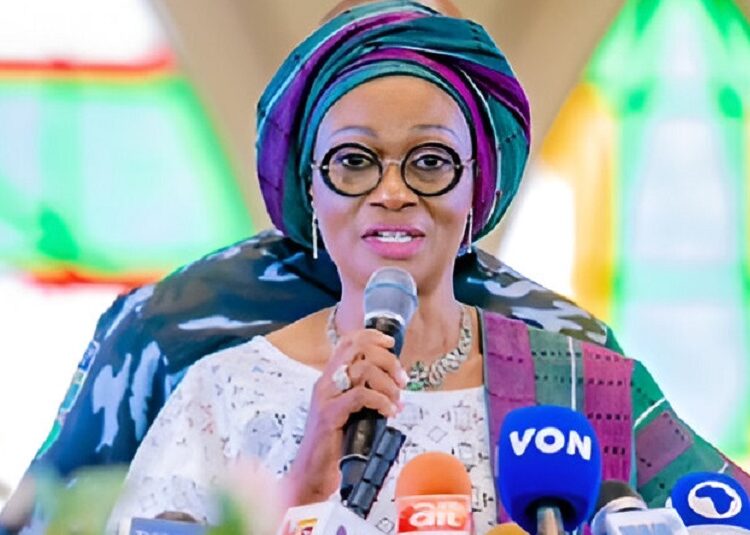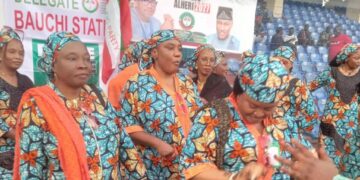The First Lady, Senator Oluremi Tinubu has officially launched the distribution of U-Lesson educational tablets to primary and secondary schools across the nine states of the Niger Delta.
The initiative, organised by the Niger Delta Development Commission (NDDC) in partnership with the Renewed Hope Initiative (RHI), aims to equip students with digital tools to support quality education and help Nigeria meet the United Nations’ Sustainable Development Goal 4 on education.
At the event held at the State House Conference Centre in Abuja, Senator Tinubu emphasised the transformative impact of digital learning devices on education, especially in underserved areas.
“These devices provide access to a wealth of educational resources that will empower students to learn at their own pace and style, in addition to classroom teachings.
“Rather than mere gadgets of recreation, these tablets serve as powerful teaching tools that foster academic excellence, creativity, and innovation,” she said.
The President’s wife commended U-Lesson for tailoring its educational software to the Nigerian curriculum, ensuring that students benefit from locally relevant contents, including an offline video library, parental controls, and an extended battery life.
Highlighting the importance of digital inclusion, Mrs. Tinubu added, “Nigeria cannot afford to be left out of the global village.”
Managing Director of NDDC, Samuel Ogbuku, also underscored the significance of the initiative, calling it a critical step toward equalising educational opportunities across the Niger Delta.
He pointed to the durability and scalability of the digital tools as an advantage over traditional infrastructure.
“We recognise that there are more than 45,000 students in the Niger Delta who need access to these resources, and we will continue to engage U-Lesson to produce more tablets for our students,” Ogbuku said.
Ogbuku expressed the commitment of the NDDC to distributing the tablets to functional schools, with support from the state education ministries to ensure equitable allocation.
The Minister of Regional Development, Engr. Abubakar Momoh, expressed optimism on the initiative’s impact on education and skill development in the region, stating, “This partnership represents a shared vision of prosperity and self-reliance for every child, youth, and woman in our communities.”
Momoh also highlighted a focus on Science, Technology, Engineering, and Mathematics (STEM) subjects, announcing plans to distribute additional STEM-focused textbooks alongside the tablets.
The founder of U-Lesson, Sim Shagaya, expressed pride in the partnership with NDDC, saying, “At U-Lesson, our philosophy has always been to optimise for adoption rather than profit.”
He added that the initiative represented one of the largest educational technology investments by a government agency in Africa.
World Health Organization (WHO) Country Representative, Walter Mulombo, welcomed the collaboration, calling it “crucial” for addressing the educational needs of children in the region.
Mulombo highlighted the importance of providing the young people with opportunities to reach their full potential, emphasising that “this initiative will help bridge that gap.”
The NDDC said it plans to support the initiative with technical training for teachers and the establishment of U-Lesson support offices across the nine states, aimed at maximising the tablets’ impact in classrooms across the region.





